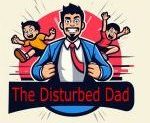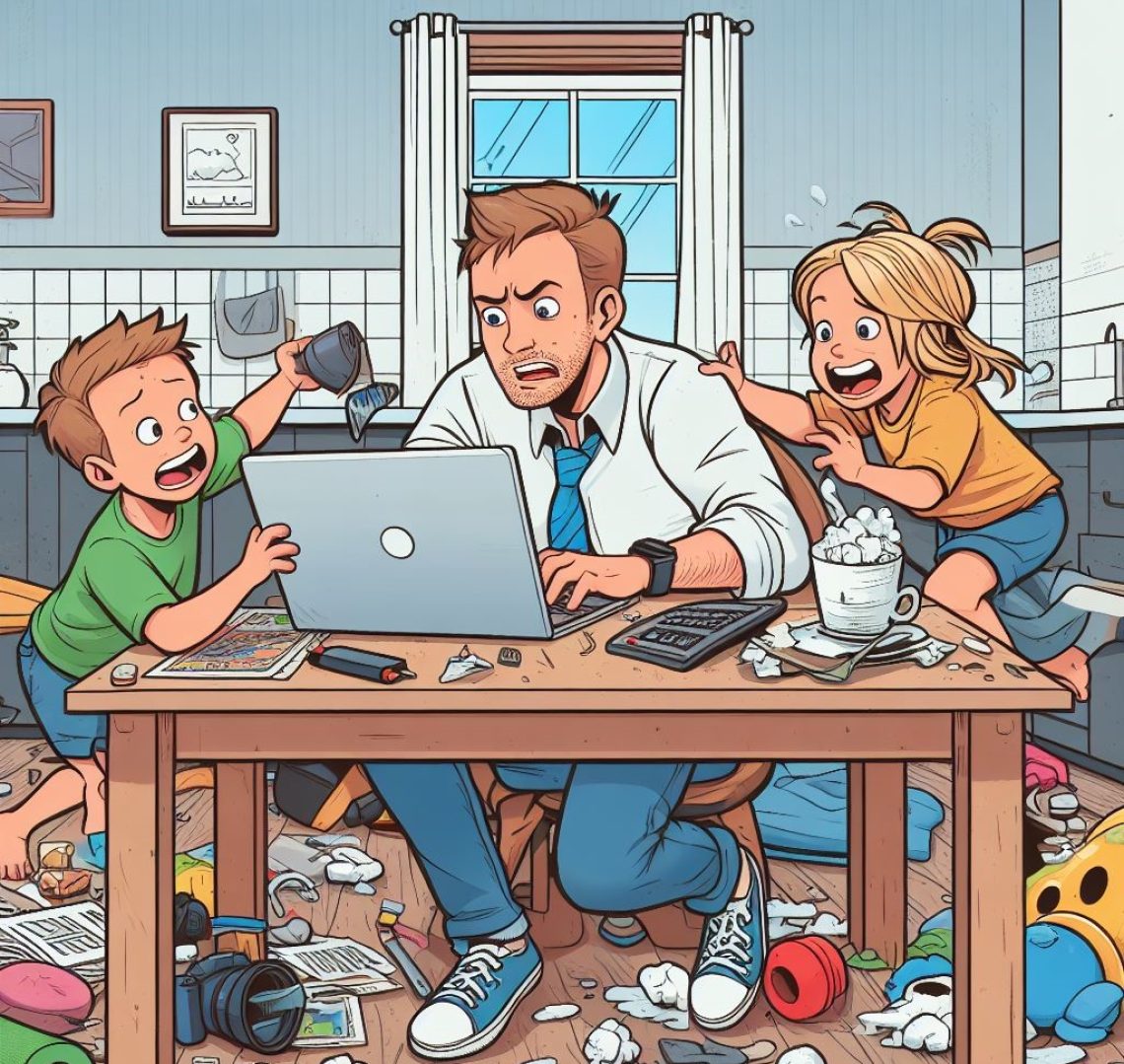
It’s hard to believe that my late-talking son, who didn’t start speaking until age 5, is now talking my ear off. He’s 10 years old and now that he’s caught up with his peers in school, it’s difficult to even remember what it was like back when he first started kindergarten with less than 20 words in his vocabulary. Maybe I’m trying to repress all the pain and worry I experienced when he was younger. Although I can clearly recall how everyone around us was trying to tell us we had to everything we could to “save” our son. We’d be a bad parents if we didn’t do something. Anything. Right?
Due to our society’s general ignorance about late talkers, I used to worry my son would never be able to attend a normal school, or even go to college someday. I realize that all the stress and anxiety was just a waste of time now. It’s only after all those years of doubt are behind me, that I know he was always going to talk – no matter what treatment or program we put him into. So why did I worry? Because the experts and institutions we went to for help had no idea what the fuck they were talking about.
Even though I’m not a doctor or expert in childhood disorders, I can see how some so-called experts are full of shit. But who am I to criticize these people, you ask? Well, don’t just take it from me, why not look at a reoccurring news article that appears every now and then, and you’ll see what I mean. From time to time, you’ll see the same news article pop up with titles like “Outgrowing Autism” or something like that. All these articles will cite some study about kids with autism spectrum disorder (ASD) who somehow get better with some form of treatment! Isn’t that amazing?!
Even though the DSM-5 (Diagnostic and Statistical Manual of Mental Disorders) clearly states that it is impossible to outgrow autism, the people behind these studies would like you to believe there’s some hope for a cure or a miracle at work here, as if autistic kids just need an IEP or speech therapy and they’ll be okay. Yeah, right. What’s more likely, is that these children were simply misdiagnosed with ASD, and as they got older it was apparent their diagnosis was crap, but no one wants to admit it now. As a father of a late talking child, I would further theorize that most of these kids with ASD who’ve “aged out” of autism are in fact late talkers: like my son.
Fortunately, when my late talker was 3 years old, and both his mother and I were completely freaked out by his lack of milestone achievements – a family member gifted me with 2 books that I found really helpful in understanding what might be going on. If you think your child might be a Late Talker, I would suggest you read the books, “Late Talking Children: A Symptom or a Stage”, by Stephen Camarata and “The Einstein Syndrome: Bright Children Who Talk Late” by Thomas Sowell. Both of these books have a wealth of information that can help you understand how most experts will most likely misclassify your late talker as autistic or as having some other worrying disorder. I’d be lying if I said these books dispelled all my worry, back when my son still wasn’t talking, but they helped me realize that not all experts know what they’re talking about when it comes to late talkers.
In speaking with doctors, speech therapists, school officials, and other experts about what was best for my son, I lost count of the amount of rolled eyes or vacant expressions that I encountered when I brought up these 2 books and the theory they presented. That theory being that late talking children, while a small percentage of our population, have always existed (from known cases like Albert Einstein to Edward Teller) and these late talkers all ended up talking just fine way back then, without any of the “early intervention” programs that we have today. All these experts just wanted me to accept their diagnoses and didn’t want to hear anything contrary to their irrefutable positions. But was it just hubris that caused them to act this way?
Stephen Camarata mentions a possible motive for the voluntary ignorance of these experts when he states in his book, “There may be higher reimbursement rates for insurance coverage or guidelines for even getting insurance coverage at all requiring an ASD eligibility. Also, families that have an ASD diagnosis may be eligible for government assistance in the form of disability payments.” Schools and other institutions don’t only have money as a possible motive for misdiagnosis, but their inherent deficits might play a role as well. Camarata further states that, “Despite the phrase “individualized education plan”, schools often have a limited number of prepackaged programs that they try to steer children into.”
I experienced this myself when my son transferred from a school in another state. The highly nuanced IEP that he had received in my home state got morphed into some ridiculously simple program that I ultimately found to be absurd and obtrusive to my son’s learning. Not only that, but my son was faced with an absence of an IEP program at the school closest to his home, and we had no alternative school presented to us because the other schools in the district that could accommodate his IEP had no room left (as they were packed with lots of other kids needing special education). He missed the first week of school this year because his school district simply had nowhere to put him. I won’t get into all the details here, but we eventually decided to voluntarily dissolve his IEP, so he could join a normal classroom where there was room for him. His mother and I determined that continuing the IEP in this new school district would have been worthless to him anyways.
I’m lucky that my son was never officially misdiagnosed with autism (though plenty of people put that idea out there). Some people might think that it’s better to be safe than sorry when it comes to your child, and that a diagnosis like autism might allow your child to receive specialized education that he wouldn’t otherwise receive. However, this can be harmful to children like my son. Camarata notes that, “Late talking children, who are put into classes with children who have much more severe mental and behavioral problems, can not only have negative effects on their morale and mental development, but it can also lead to imitation of other children’s misbehavior.” By dissolving my son’s IEP (against the recommendation of the school), we were able to keep him out of such learning environments.
Another important point of Camarata’s ideas to consider is that “this aging out trend in autism, if recognized as a result of misdiagnosis might be forgiven for erring on the side of caution, but this sentiment doesn’t address what it would do the parents of a child who is actually autistic who would have false hope that their child might age out like other late talkers. 90% of kids that have all the classical signs of autism are still autistic years later, while kids who are on the spectrum only 1⁄3 are still autistic years later.” These false hopes and misunderstandings surrounding ASD do not ultimately help parents of children with autism or those of late talkers either.
It’s all a form of seemingly well-meaning madness. If you were to look at the cases of autism from a global perspective, you’ll see that the United States has gone bonkers for giving out the label of autism spectrum disorders to children. According to recent records, “the rate of autism in the U.S. during 2018 was 1 child in 44.” While other countries, like France, had a rate of autism of only 1 in 144 people! It’s obvious that most experts in the US are just checking off “symptoms” on a list when diagnosing kids, without thinking about any finer nuances in behavior or higher order concerns that might lead them to a different conclusion.
All these articles about kids “aging out” of autism makes me mad, because it’s obvious that the experts are not trying to understand what’s really going on with late talkers like my son (or children with autism). To further quote Camarata, he decries that “There is little institutional memory about late talkers, because clinicians simply didn’t continue to follow up with children who no longer had issues.” And so, late talkers have just been grouped into the autism collective due to the laziness of experts. The only anecdotes about late talkers that seem to survive the passage of time, only do so because that late talker ends up doing something brilliant, like Albert Einstein, but not all late talkers have the same level of brilliance as Einstein did, and so are not remembered as readily.
And it’s not just “institutional memory” that’s found lacking about late talkers. I found out that an uncle of mine was a late talker himself, but it was so long ago that it was hard for people in my family to remember, and they only brought it up when I talked about my own late talking son. This particular uncle is an amazing singer and musician (which also aligns with the theories presented by both Stephen Camarata and Thomas Sowell in their books about late talkers) and even my uncle didn’t remember his late talking stage – it was only older siblings of his who mentioned it to me. If not for my uncle’s older brothers and sisters, his would have just been another forgotten story of late talking.
In some way, I can understand why people (parents in particular) would have the urge to forget a stage of late talking of a loved one. Now that my own son is no longer behind his peers in school – I’m simply happier moving on from all that worry. It’s just easier to forget the struggles of the past, as is the case with most unpleasant things. However, continuing with our society’s group amnesia wouldn’t help change anything for future late talkers, or their parents. In all the chaos of trying to figure out how to “save” my son, he lost a lot of time to “just be a kid”. What’s really distressing is that my relationship with him has been significantly strained because of my ignorance about what was really going on with him, and by giving in to peer pressure from experts and well-meaning friends and family to just “do something”. Anything! But it was a mistake that I regret now.
I know it’s easy for me to tell a parent of a Late Talker to not worry. Now that my son is in a good spot, it would be absurd to overlook the worries of other parents who are still struggling with doubt about their own child. But the information is out there for you if you are willing to find it. You don’t have to accept autism (or any other disorder) as a label for your child if you feel you disagree with the experts. In fact, it’s kind of your duty to help protect your child from harmful diagnoses that can hinder your child’s development and chance for happiness. Right? I mean, who else do these kids have besides us? Will you just blindly accept any kind of “early intervention”, so you can pretend you’re doing all you can? That’s all well and good, but my advice to you would be to just chill the fuck out. I wish I had.
Categories: late talking children

